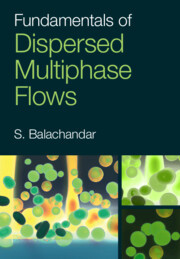Description
Fundamentals of Dispersed Multiphase Flows
Language: English
Subject for Fundamentals of Dispersed Multiphase Flows:
Publication date: 03-2024
679 p. · 18.3x26.1 cm · Hardback
679 p. · 18.3x26.1 cm · Hardback
Description
/li>Contents
/li>Biography
/li>
Dispersed multiphase flows are at the heart of many geophysical, environmental, industrial, and energy applications. Volcanic eruptions, rain formation, powder snow avalanches, sediment transport, and dust storms are some classic examples from the environment, while industrial applications include fluidized beds, slurry transport, fuel injection, cyclone separators, and plasma coating, to name a few. Although each application is unique, they share significant commonalities in the underlying dispersed multiphase-flow physics that govern their dynamics. This book takes a rigorous approach to explaining the complex interconnected physical processes that are at play, before developing different classes of mathematical models and numerical techniques that are appropriate for different regimes of dispersed multiphase flows. Containing many examples and over 100 exercises, it is suitable for use as a graduate-level textbook as well as a reference for researchers who want to model and simulate a multiphase flow phenomenon in their application.
1. Introduction; 2. Scales, mechanisms, and parameters; 3. Description of the dispersed phase; 4. Isolated rigid particle in an unbounded ambient flow; 5. Lift force and torque in unbounded ambient flows; 6. Heat and mass transfer from an isolated sphere; 7. Particle–turbulence interaction in the dilute limit; 8. Particle–wall hydrodynamic interactions; 9. Particle–particle interactions; 10. Collisions, coagulation, and breakup; 11. Filtered multiphase flow equations; 12. Equilibrium particle fields; 13. Multiphase flow approaches; 14. Particle-resolved simulations; 15. Euler–Lagrange approach; 16. Euler–Euler approach; A. Index notation; B. Vector calculus; C. Added dissipation of an isolated particle; D. Solution of the Helmholtz equation; E. Derivation of the perturbation force of the BBO equation; F. Derivation of MRG equation with reciprocal theorem; References; Index.
S. Balachandar is Newton C. Ebaugh Professor of Mechanical & Aerospace Engineering at the University of Florida. He is a fellow of the American Physical Society and the American Society of Mechanical Engineers. He received the Thermal Fluids Engineering Award from the American Society of Thermal Fluids Engineers, the Gad Hetsroni Senior Researcher Award from the International Conference on Multiphase Flow, the Freeman Scholar Award from the American Society of Mechanical Engineers, and the Francois Naftali Frenkiel Award from the American Physical Society. He is the co-editor-in-chief of the 'International Journal of Multiphase Flow'.
© 2024 LAVOISIER S.A.S.




